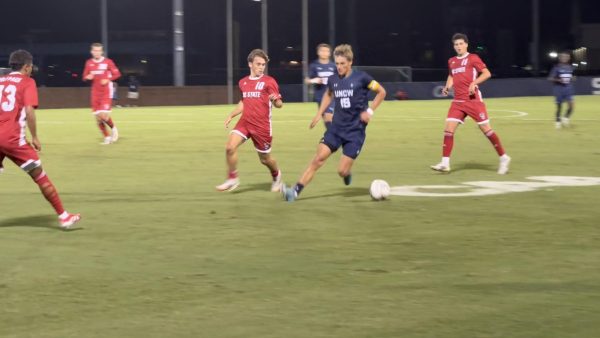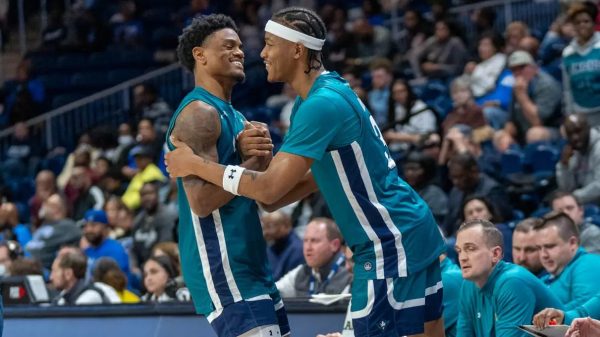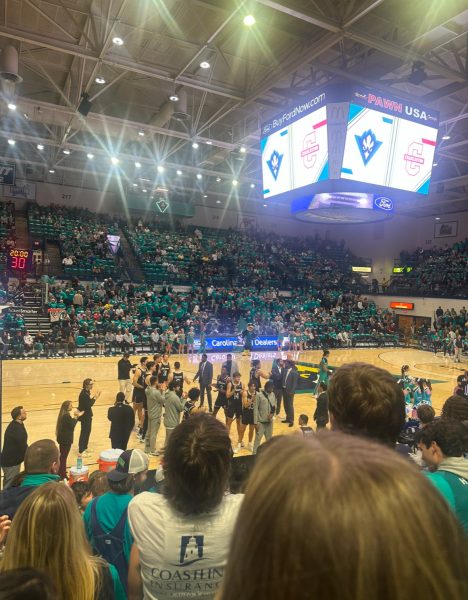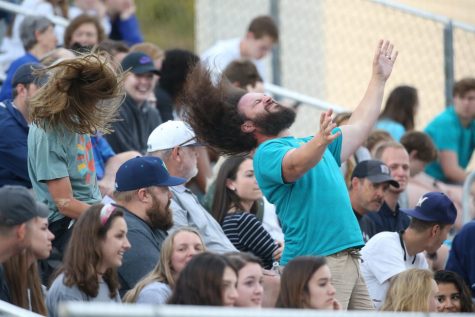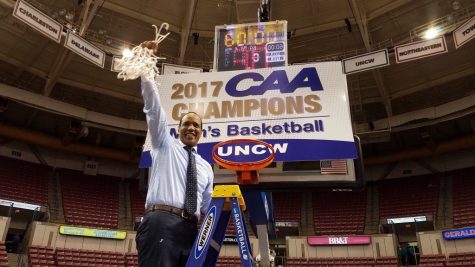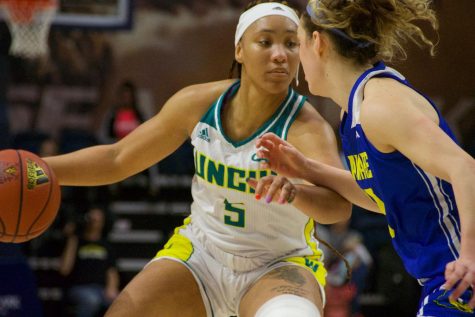Men’s tennis preview: DuBois, Seahawks ready to go
Portions of this article appear in both the men’s and women’s tennis spring previews
Deep southern roots
In the early 1990s, when UNC Wilmington’s head men’s tennis coach Mait DuBois was a senior in high school, he visited Charleston Southern on a recruiting trip. On the visit, he was hosted by UNCW’s now-second-year women’s coach Hans Olsen, who was a senior at CSU. Since then, the two have become close friends and have had brainstorming sessions about coaching tennis for nearly 20 years. Dubois served as Olsen’s assistant both at CSU and North Carolina State. He was in even Olsen’s wedding.
Before coming to UNCW, Olsen won four conference titles in five years as the men’s coach at CSU. At NCSU, as head women’s coach, he reached the NCAA Tournament five times.
In 1996, his senior year, DuBois was named the team captain and Most Valuable Player on a team that won a Big South Championship for CSU.
“I have tremendous respect for him as a coach,” Olsen said. “What he has done with this team specifically since he has been here has been amazing.”
Men’s preview
Since arriving at UNCW in 2007, DuBois has accumulated four Colonial Athletic Association titles and five NCAA tournament berths. He has been named CAA Coach of the Year four times and Regional Coach of the Year twice.
After losing all-CAA selection Christiaan Van der Burgh and CAA-Player-of-the-Year Santuu Leskinen to graduation last spring, the Seahawks welome six international freshmen this year.
The newcomers will join juniors Josh Hublitz and Andres Torres, sophomore Agustin Savarino and freshmen Gabe Hocevar and Marshall Waren. Hublitz, who has proven to be one of team’s engines, went undefeated in the last weekend of the fall. The Seahawks finished 9-4 in singles in that time and captured two doubles victories from the Hublitz-Torres tandem.
The highlight of the fall came in October when Hublitz and Hocevar teamed up to knock off a No. 16-ranked South Carolina duo at the United States Tennis Association-Intercollegiate Tennis Association Regional. Hublitz and Torres each won consolation titles in singles at NCSU’s Wolfpack Invitational the same month.
DuBois said the team spent more hours on training than they ever had in the fall. He feels the team can be competitive on a national level, though the urge for national attention should never overshadow the process of player development.
“We always expect to compete for national titles,” said DuBois. “Our biggest goal right now is setting the culture and building a foundation.”
As for the culture of the team, DuBois has a group of hard workers who enjoy the gritty day-to-day grind.
“Tennis is a country club sport, but we are about as blue collar as a group as you’re going to see,” said DuBois. “This group is very talented and success is in our future.”
The men’s team has 21 matches scheduled before April’s conference tournament. The first match of the fall is on Jan. 21 at noon vs. Appalachian State at the UNCW Tennis Courts aka “The Bird Cage.” It will be the first of 10 home appearances slated for the spring season.
NCAA rule change
Over the past two years the NCAA Division-I Tennis Committee has eliminated ad-point scoring and has cut doubles matches to just one set. This means that when the score is 40-40, also known as deuce, the game will be decided on the next point.
The NCAA and ITA accepted the rules in an attempt to shorten matches and improve the fan experience. Big time, game-deciding points are now a commonality in college tennis since the elimination of ad-scoring. With doubles matches being decided in one set, and no ad-scoring, tennis at the collegiate level has gotten faster, more exciting and more competitive.
In order to win the doubles team point, a team must win two of three doubles matches. If a team picks up the doubles point, it only needs 3 singles victories to clinch the team win with 4 points. Olsen said there were many matches that finished 4-3 last year in the conference. Oftentimes, the difference between a team winning and losing is the doubles point.
“It makes it easier for people watching,” Olsen said of the new rules. “It’s a lot faster. I think overall it’s good, as long as it’s the same for everybody.”



